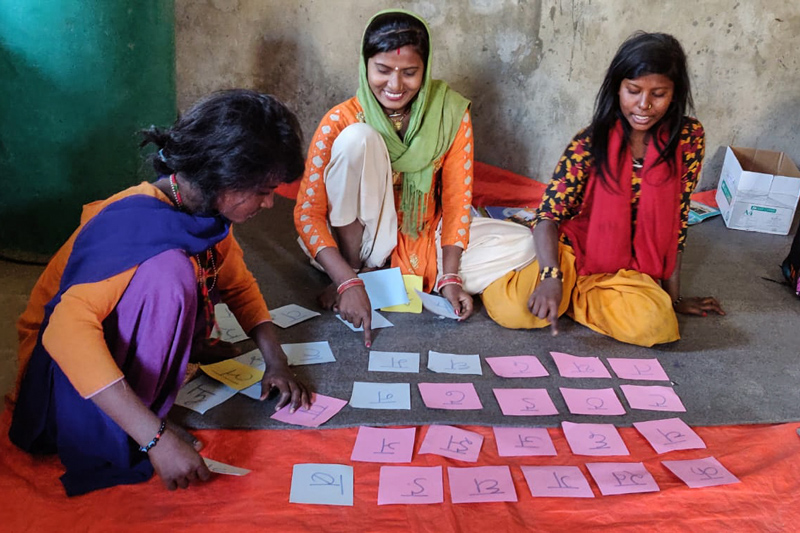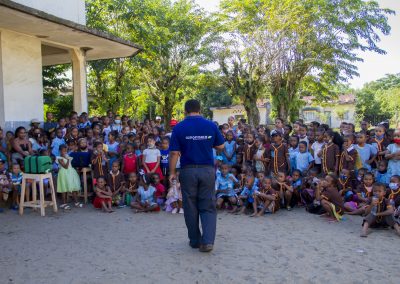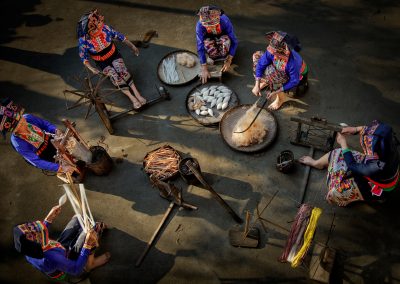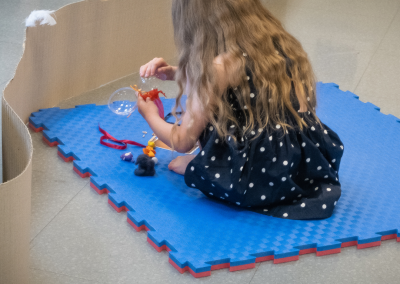
Streetchild
Empowerment of Musahar girls through access to education.
Location of impact : Népal
Grant : 5000€
Project supported in 2021-2022
Street Child conducted a 9-month study in 2016 with the Musahar community in collaboration with the Janaki Women’s Awareness Society (established in the region since 1993). By engaging with the people, we were able to understand their specific needs and the barriers they face in accessing education and social, political and economic inclusion. Indeed, members of the Musahar caste in Nepal are considered “untouchables among untouchables”. They live in extreme poverty and are marginalised because of their social status. Their access to education is limited by the discrimination they may face at school and by the language barrier, as they speak a local language and not the official Nepalese language.
Girls are even more vulnerable as they face recurrent obstacles to accessing schooling such as forced marriages, early pregnancies, domestic work and servitude to pay off their family’s debts.
Only 5% of Musahar girls over the age of 11 are in school. Their literacy rate is only 4% (compared to a national average of 77.5%). On average, these girls are married by the age of 14.
In 2018, Street Child launched an ambitious project to support 3,000 Musahar girls in the most remote areas of Nepal. The aim is to enable them to access quality education and employment, and thus end the cycle of debt bondage.
The project includes the following activities:
- An Accelerated Learning Programme to acquire basic literacy and numeracy skills.
- A training programme providing the skills and knowledge to start and run a small business.
- Life Skills Protection Circles to enable beneficiaries to develop knowledge about their rights, social issues, and to acquire decision-making skills.

the organisation carrying the project
Created in 2016, Street Child France is a non-profit organisation that works with its partners in the international Street Child network to promote the right to education of the most vulnerable children. The organisation seeks to increase Street Child’s visibility in France, and organises fundraising in the country, for Street Child projects across Africa and Asia. Our projects aim to provide access to education and improve the living conditions of vulnerable children, their families and their communities.
As part of our project with the Musahars, we work closely with our local Street Child Nepal entity, which acts as a facilitator and takes responsibility for monitoring and evaluation of the project, and AASAMAN Nepal, our local partner in charge of implementing the Accelerated Learning Programme.
In 2020, Street Child Nepal was awarded the Dina-Bhadi Honorary Award for its contribution to the development of the Musahar community by the Nepalese government. This recognition is a testament to our positive and lasting commitment to these girls to break down the barriers they face and enable them to develop and lead a dignified life.
how are donations used
Thanks to the AZICKIA Endowment Fund donation, 38 Musahar girls aged 10-19 will benefit from our project’s Accelerated Learning Programme.
For 4 to 5 months, the girls will have the opportunity to attend 45-minute classes in basic reading, writing, and mathematics, 6 days a week. The students will be supported to acquire the skills required to access formal education and/or employment depending on their age. In case they have difficulties, they will also be given appropriate support to help them overcome their shortcomings.
The project leaders will train and mentor community teachers to adopt inclusive teaching methods and practices within the programme.
key figures
- Since 2008, Street Child has helped more than 330,000 children get back to school through its projects.
- We work in 16 countries in Africa and Asia, in close collaboration with local communities and partners.
- Since the Musahar project began, 3,915 girls have benefited from the Accelerated Learning Programme and life skills development workshops.
- So far, 1,797 girls enrolled in the programme have started their own businesses.




